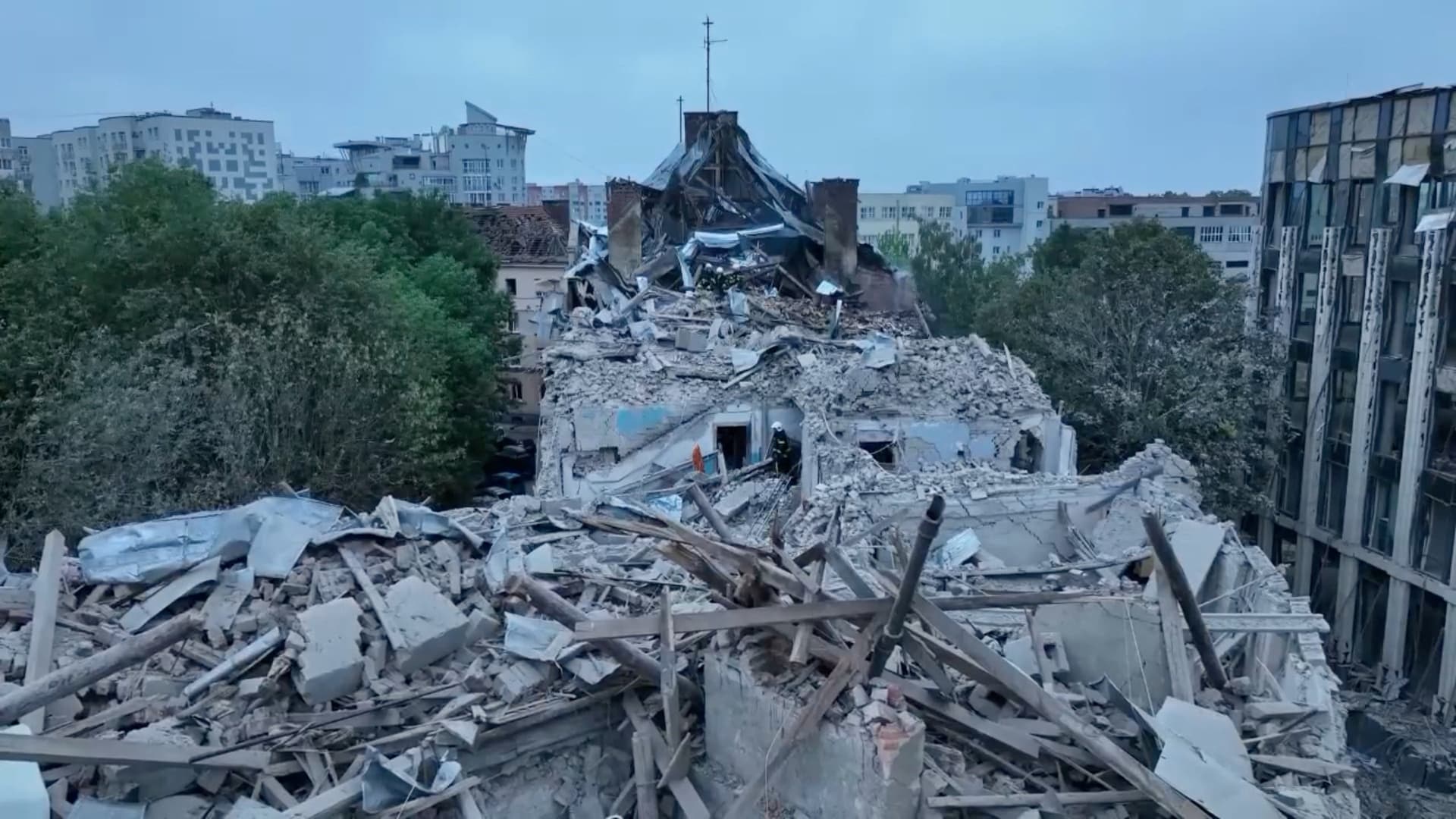Russian Barrage Kills at Least 19 Across Ukraine, Zelenskyy Says
At least 19 people are killed and dozens wounded as Russia conducts a massive overnight drone and missile assault across Ukraine, officials say. The strikes intensify Kyiv's plea for more air defences while raising fresh concerns about civilian protection and regional escalation.

Ukrainian emergency services report at least 19 people killed and dozens injured after a wave of Russian drone and missile strikes swept multiple regions overnight on November 19, 2025. Authorities say the attacks targeted energy infrastructure and a range of civilian sites, deepening humanitarian and security strains across the country.
President Volodymyr Zelenskyy on social media framed the assault as one of the largest in recent weeks, posting that work is underway to address the aftermath "across many of our regions" and stating "It is confirmed that Russia launched more than 470 attack drones and 48 missiles of various types against Ukraine overnight one ballistic and the rest cruise missiles." Emergency crews and local officials are managing fires, power outages and search and rescue operations as electricity networks and other services are disrupted.
The strikes come as Moscow says Ukrainian forces attempted to strike a civilian area inside Russia, alleging the use of US made ATACMS missiles against the southern city of Voronezh. Russian authorities have used such claims in past exchanges to justify responses across the border. Kyiv has not issued a detailed account contradicting Moscow's claim in the immediate hours after the barrages.
Russian forces have intensified daily drone and missile attacks in recent months, analysts say, focusing on degrading Ukraine's energy systems and eroding public morale ahead of the winter season. The scale of the overnight barrage, if confirmed, marks an escalation in the tempo of long range attacks and places renewed pressure on Ukraine's air defence resources, which Kyiv says are already strained.
The strikes come as President Zelenskyy completes a short diplomatic tour to meet with Kyiv's strongest European partners, including Türkiye. Officials accompanying the president have underscored an urgent need for additional air defence systems, ammunition and technical support to blunt the growing drone and missile threat. Kyiv frames such capability as essential not only for protecting civilians but also for preserving critical infrastructure that underpins public services and economic resilience.
The attacks test international legal standards that govern conduct in armed conflict. Strikes that hit civilians or civilian infrastructure can raise questions under international humanitarian law, particularly where civilian casualties are significant or where systems essential to civilian survival are impaired. Investigators and legal experts will face complex tasks in attributing responsibility and intent, with implications for accountability and future deterrence.
Humanitarian agencies and local authorities are mobilizing to assist affected communities, restore power and repair damaged facilities. In regions where the attacks struck residential areas and public utilities, recovery operations face both technical hurdles and the threat of further strikes that complicate repair efforts.
As Kyiv appeals to international partners for more robust air defence capacity, the immediate priority for officials and residents remains tending to the wounded and stabilizing communities hit by the strikes. The scale and persistence of the bombardment underscore the broader geopolitical stakes as European states weigh further military and diplomatic support while seeking to prevent the conflict from spilling beyond current boundaries.


